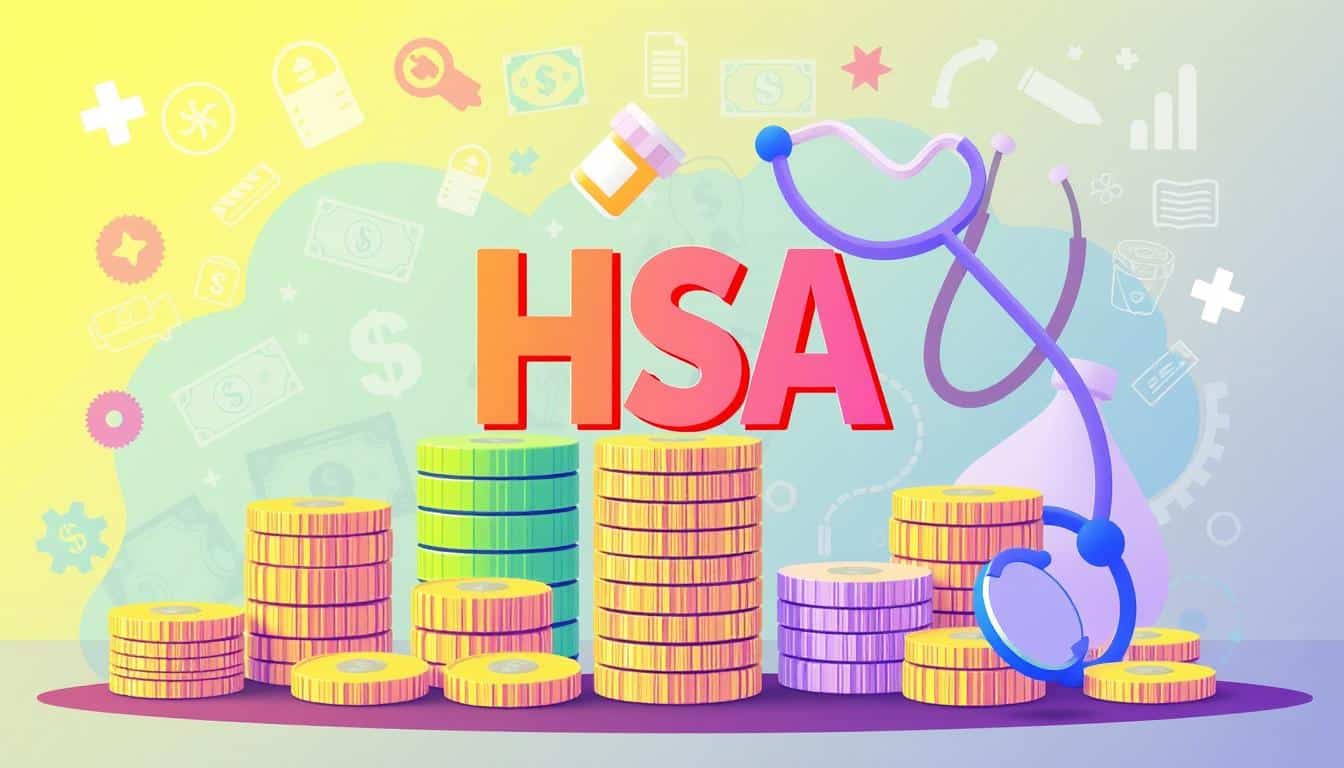Are you looking to save money while dealing with healthcare costs? Health Savings Accounts (HSAs) can help. They let you save for medical expenses and offer tax benefits. You can deduct your contributions, your savings grow without taxes, and you can use the money for medical needs without taxes.
But, it’s important to know the rules for HSA contributions. This ensures you get the most from this valuable tool. With new rules every year, staying up-to-date is crucial. If you want to know if all your HSA contributions are tax-deductible, you’re in the right spot! Keep reading for all the important details. And don’t forget to check out IRS.gov/Pub969 for the latest info!
Key Takeaways
- HSAs offer a triple-tax advantage: contributions are tax-deductible, funds grow tax-deferred, and withdrawals for qualified expenses are tax-free.
- The maximum contribution for eligible individuals in 2017 was $3,400 for individuals and $6,750 for families.
- Individuals aged 55 and older can make catch-up contributions of an additional $1,000.
- You can carry over unused HSA funds from year to year without limit, allowing for continued growth.
- Employers can also contribute to HSAs, enjoying similar tax benefits.
- Once you enroll in Medicare at age 65, you can no longer contribute to your HSA.
Understanding Health Savings Accounts (HSA)
Health Savings Accounts (HSAs) are a smart way to handle healthcare costs. They come with tax benefits. Knowing how to use them can save you money. Let’s explore what an HSA is and who can use it.
What is an HSA?
An HSA is a special account for medical expenses. It lets you save money without paying taxes on it. This means you can save for unexpected medical bills without losing money to taxes.
To start an HSA, you need a High Deductible Health Plan (HDHP). This is key for using an HSA. HSAs offer tax benefits: you can deduct contributions, your savings grow tax-free, and you don’t pay taxes on withdrawals for medical expenses. This helps you save more money over time.
Who Can Contribute to an HSA?
Wondering who can put money into an HSA? Here are the answers:
- You, if you meet the eligibility criteria.
- Your employer, which can contribute on your behalf.
- Family members, who can also contribute to your account.
To qualify for an HSA, you can’t be claimed as a dependent on someone else’s taxes. You also can’t have other medical coverage that’s not allowed. This makes HSAs a great tool for managing healthcare costs as you get older or face health issues.
Are All HSA Contributions Tax Deductible?
Understanding Health Savings Accounts (HSAs) can be tricky, especially about tax deductions. Not every HSA contribution gets a tax break. Knowing the contributing to HSA rules and what you qualify for helps you get the most tax benefits.
Contribution Eligibility Criteria
To see if your HSA contributions are tax-deductible, you need to meet some rules. You must be:
- Covered under a High Deductible Health Plan (HDHP).
- Under 65 years old and not on Medicare.
Remember, employer contributions don’t count as taxable income. This is a common mistake that can confuse people about HSA tax benefits.
Deductibility of Contributions
For individual contributions, the rule is simple: you can deduct them from your taxes. This is why knowing about HSA contribution deductibility is key. The IRS has set limits for contributions:
- $3,850 for individual coverage in 2023.
- $7,750 for family coverage in 2023.
- Those 55 and older can add $1,000 more.
Staying within these limits helps you get the most from your HSA. Going over can result in a 20% penalty from the federal government. States like Wisconsin also have their own penalties, up to 33% for unmanaged excess contributions.
Additional Tax Benefits of HSAs
HSAs offer more than just tax benefits for direct contributions. They also have other tax perks. When you put money into an HSA, it grows without being taxed. This means you won’t pay taxes on any interest or earnings.
And when you use the money for medical expenses, it’s tax-free. This is great for your health and your wallet.
Another benefit is the carryover feature. Unlike some accounts, HSAs let you keep unused funds for future years. This can help a lot with future healthcare costs.
Imagine contributing up to $4,150 in 2024. For families, that’s $8,300. And if you’re 55 or older, you can add even more. This makes saving for healthcare easier than you might think.
When you turn 65, you can use your HSA for non-medical needs without a big penalty. While you’ll still have to pay income tax, it’s a useful option. Knowing these benefits can boost your savings and help you understand HSAs better.








